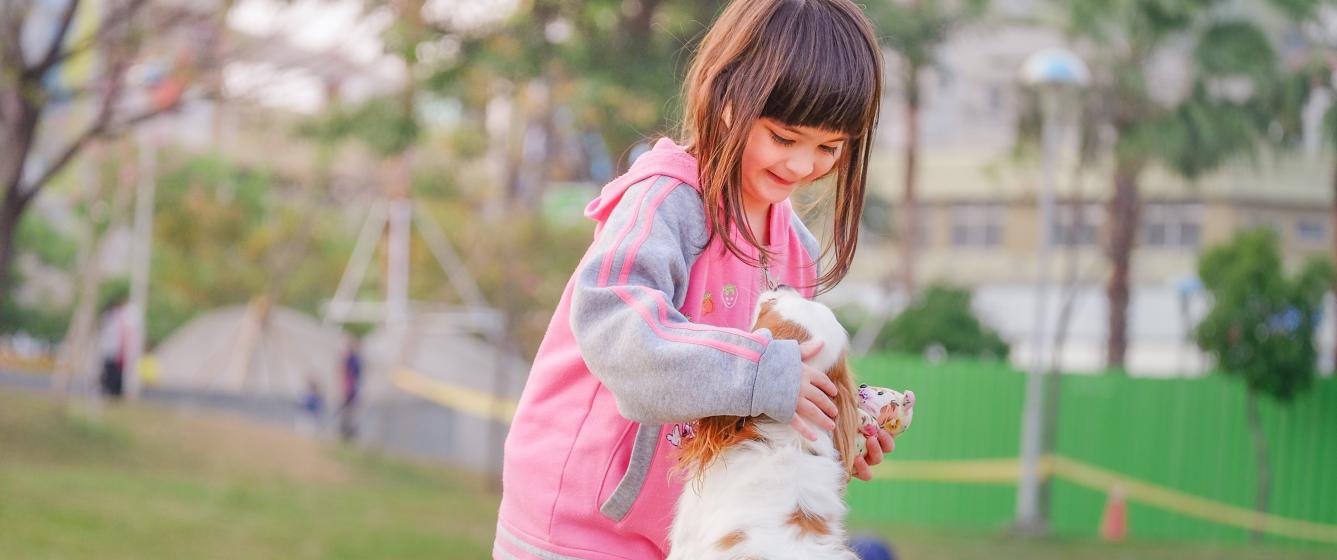Responsible Pet Ownership
The term “Responsible Pet Ownership” encompasses a variety of topics relating to the care and ownership of an animal. Women’s Animal Center would like everyone considering adding a pet to their family to keep the following points in mind:
Bringing a pet into the family is not a decision to be taken lightly. Be sure the type of pet you are considering is appropriate for your lifestyle. Make time to research your desired pet and speak with Women's Animal Center staff if you have questions about care of one type of pet over another. Above all, avoid impulse decisions about adopting a pet.
Be realistic about the type and number of pets you can care for. Remember, it’s not just the adoption costs, it’s a commitment of time, costs of medical care, appropriate food, clean environment and water and appropriate training. Proper care includes time to regularly exercise your pet both physically and mentally. Above all, this provides an opportunity for you to bond with them. This bond will be one of the more important in your life, and the most important in your pet’s. You become their caretaker and friend. They rely upon you for everything.
Are you prepared to stick with your pet if there are difficulties? After all, this relationship should be for the life of your pet. Perhaps your pet needs additional help with behavior. Will you make the time and have the funds to go to training or behavior consulting sessions? What will happen if your pet needs extra sessions or medication? Pet ownership is a relationship – between you, your family and your pet. It will require an investment of time and money.
Commit to preventive health care for your pet. This means considering the costs associated with spaying or neutering, providing appropriate vaccinations, dental care, flea and tick treatments, and the added costs of unexpected illness or accident. Preventive care also means proper identification for your pet. Consider microchipping every animal. Be sure to keep your contact information up to date with the chip company and with your veterinarian. In addition, keep a collar with ID tag on your animals, as this is the fastest way for someone to get your pet home to you. Tattooing is also an option for permanent identification. Preventive care also includes planning for your pet in the event of an emergency – assemble an evacuation kit for them while you are planning those for the rest of the family. And please, if you do evacuate, be sure to take your pets.
Being a responsible pet owner also includes complying with the laws concerning your type of pet in your municipality. These laws incorporate being a considerate neighbor into pet ownership. Follow ordinances and clean up after your pet, whether on your own property or in pubic. Obey noise, leash and licensing laws. Do not allow your pet to roam, or to become a stray. Train and socialize your pets, even if you don’t intend to go anywhere other than the veterinarian. Training and socializing your pet is quality time you will spend together. It deepens your bond, leading to greater understanding of each other.
If circumstances arise where you feel you are not able to properly care for your pet any longer, make arrangements ahead of time to have them taken care of. You may find a relative, friend or neighbor will agree to welcome your pet into their family. You may also wish to have instructions kept with your advanced medical directives or written into your will about the care of your pet.
Please also consider how your pet is aging and consult with your veterinarian. Has there been a decline in mental or physical health? Your veterinarian can help you evaluate your pet’s quality of life and reach a humane decision together.

